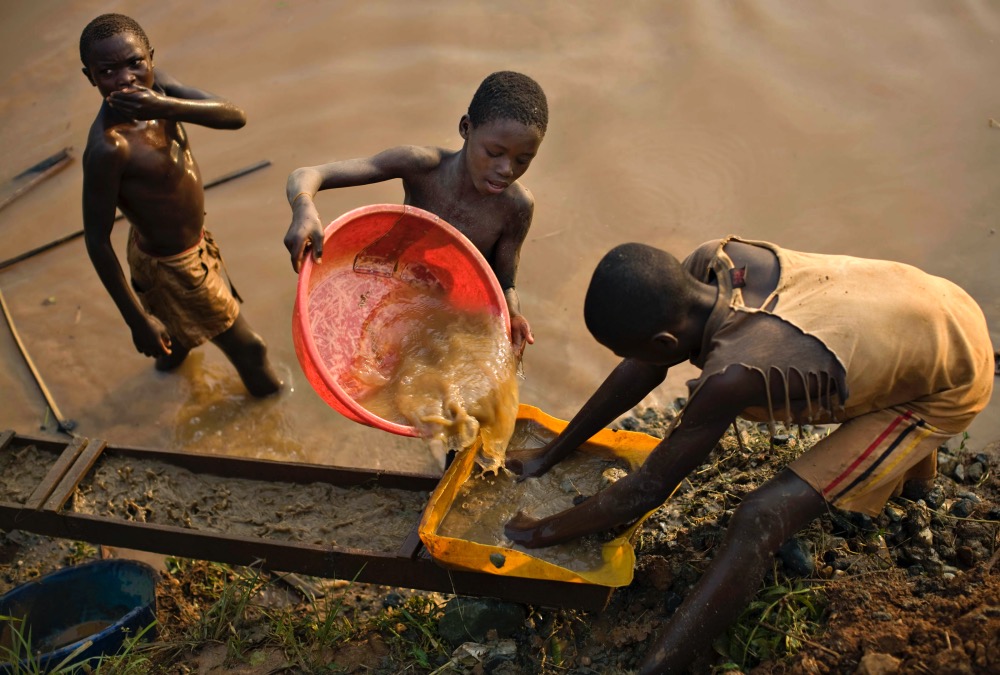Kinshasa, Democratic Republic of Congo
Thomson Reuters Foundation
Authorities in Democratic Republic of Congo’s south-eastern mining heartland are boosting efforts to tackle child labour amid concerns that the coronavirus pandemic could drive more families to put their children to work in mines, officials said.
Congo is Africa’s main producer of copper and the top global source of cobalt, accounting for two-thirds of global supplies of the metal used in smartphones and electric car batteries.

Boys pan for gold on a riverside at Iga Barriere, 25 kilometres from Bunia, in the resource-rich Ituri region of eastern Congo, on 16th February, 2009. PICTURE: Reuters/Finbarr O’Reilly
Mining accounts for 32 per cent of Congo’s national output and the economy has been hard hit by the pandemic, which has slowed demand for metals and other raw materials.
The slump means mining workers are earning a fraction of what they did before the outbreak, and are more likely to take their children to work, according to activists and academics.
“Economic activity has been paralysed during this health crisis and this will have a negative impact on parents’ income,” said Mathieu Kazembe Sawana Ilunga, the official who oversees the economy and industry in the south-eastern Lualaba province.
“But this must not be used as justification for the presence of children in mines,” he told the Thomson Reuters Foundation.
Tens of thousands of children as young as six work without protective gear in artisanal mines in the country’s southeast, according to rights groups including Amnesty International.
About 15 per cent of children aged 5 to 17 across Congo are engaged in child labour – with most doing dangerous work – a 2019 report by the National Institute of Statistics found.
Children in Congo are permitted by law to work from the age of 16 if they are deemed fit to do so by labour inspectors.
Nathalie Lunda Ngandu, the official in charge of social affairs, gender and family issues in Lualaba, said she shared the concerns of activists about a rise in child labour at mines.
Authorities will address the soaring cost of basic necessities, raise awareness in communities and at mining sites, and improve monitoring systems for child labour, Ngandu said.
Congo launched new monitoring and tracing mechanisms in 2018 to tackle child labour in mineral production. They apply both to artisanal mines and operations run by large mining companies.
“We will also spearhead two major activities with elected representatives and traditional and local authorities so they get involved…in the fight against the worst forms of child labour, particularly in the context of COVID-19,” Ngandu added.
Together, Lualaba and neighbouring Haut-Katanga account for nearly all of Congo’s output of cobalt. Exports fell by 15.2 per cent in the first quarter of 2020 compared to the same period last year.
Roger-Claude Liwanga – a researcher at Harvard University who has studied child labour in Congolese mines – said authorities were “often in denial” about child miners, and urged them to distribute free food to prevent the practice worsening.
Civil society groups this month said many mines were forcing workers to stay on site – to avoid coronavirus outbreaks – and providing insufficient food and water and inadequate housing, while protective equipment and hygiene measures were lacking.
Congo has so far confirmed about 5,925 cases and 135 deaths.





